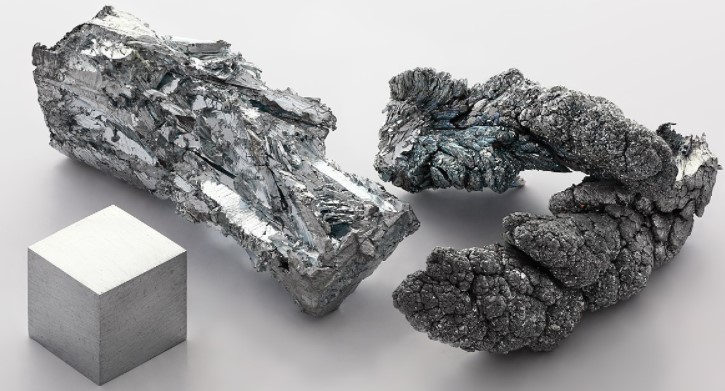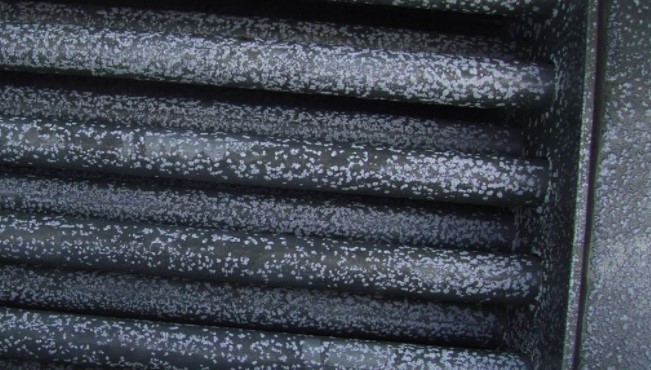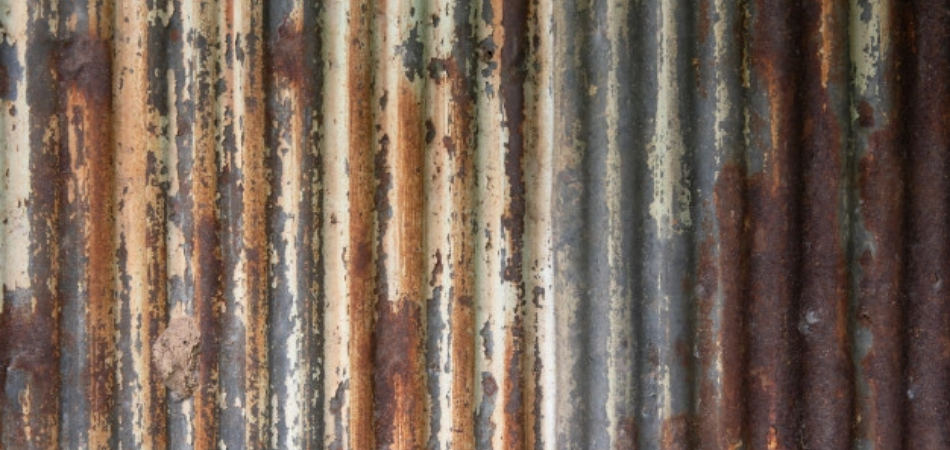The presence of rust on metals is an unwanted problem for many people because it can occur unexpectedly on metal screws, pipes, and handrails. Rust is simply iron oxide that occurs when water and air react with the iron in the steel to form various rust colors. So, does zinc rust?
Zinc is a metal, and like other metals, it rusts when exposed to the elements. However, zinc’s rust does not resemble the rust that other metals develop. Rather than flaking off in large patches, zinc rusts slowly into a fine protective patina that ultimately protects the underlying metal from corrosion.
You can get confused about the effectiveness of zinc in coating other metals to prevent rust, and now, you read that zinc can rust. However, you should not be confused as the latter part of this article explains all in detail.
Contents
What Happens When Zinc is Exposed To Air?
Zinc, just like every other ferrous metal will corrode on exposure to moisture or air. As earlier explained, this process takes much slower than in most metals. Take, for instance, Iron reacts with oxygen and water present in the atmosphere to produce Iron (III) oxide right on the metal surface. The result of this corrosion will give rise to a reddish-brown color which is called rust, exposing more of the underlying metal for further deterioration.

Zinc as well reacts when exposed to air to form a very thin layer of oxide which reacts on the other hand moisture in the air to form zinc hydroxide. This then reacts further with CO2 (Carbon dioxide) to produce carbonate. Unlike oxides of Iron that will flake off much easily, carbonates of zinc are tough, chemically stable, and they always adhere to the surface of metals firmly. The Platina layer of zinc is what acts as a barrier or protection from moisture and air, preventing them from coming in contact with the metal substrate and ultimately stopping further deterioration.
What is Zinc White Rust?
Another type of corrosion attributed to Zinc is what is known as white rust. This rust often occurs when the surface of zinc is unable to develop a resilient carbonate layer. In its stead, the sun surface retains a hydroxide layer (white) that appears powdery. In addition to what was earlier stated, another possibility of having white rust on zinc is due to the lack of free flow of air over the surface of the metal. This effect of white rust on zinc is generally considered to be localized to the surface and can be dealt with by simply exposing the white rust deposit to the air. You can also remove white rust from zinc by brushing the surface lightly.

Is Zinc Coating Durable?
Yes, the zinc coating is dependable. If you have any need for a moderate corrosion-resistant finish, then zinc is the best option. If you will be working on an installation in a high acidity salt spray environment, you may want to consider other options like stainless steel as it can withstand more torture from the marine vicinity. What makes Zinc durable? Well, the answer to this question is pretty simple. While the carbonate of zinc gives it its protective attribute, zinc in itself is a highly reactive metal which means that it is susceptible to corrosion, but is about 1/30 times the rate of corrosion in steel. This makes it (as well as other metals coated in it) have longer service life when exposed to air. The use of zinc finish is traditional to the process of cold galvanizing in preventing rust.
Iron or Zinc: Which is More Reactive?
Zinc is more reactive than iron and is often used to coat iron. The reason behind this process is a no-brainer. Since zinc is more chemically reactive, when it is used to galvanize iron, it will undergo a reaction with oxygen in the air to form zinc oxide (ZnO) which puts a stop to further deterioration of the metal. In a situation where the zinc coating surface is scratched or broken, it will protect the iron still by sacrificing itself to corrode because of its reactive nature. Once the zinc coating has finally deteriorated, the iron starts to rust. On the other hand, if the breakage on the zinc coating is bigger, the iron underlying iron substrate may corrode with the zinc.
What is the Shelf Life of Zinc Plating?
This depends on the type of galvanization used in the preparation of the plating. Zinc plating used in hot-dipped galvanization of steel will ensure the vilest environment for up to 50 years. This plating can go for as long as 70 years (or even more) in soil that is less corrosive. Humidity is said to have more effect on the corrosiveness of soil far more than temperature, so it is best to factor in this condition when galvanizing steel for use underground.
Is Zinc Alloy More Durable than Stainless Steel?
No. Although some alloys of zinc are said to be very strong, stainless steel is much more durable and better in this regard. Zinc is a much heavier metal and can be alloyed with another metal to make it more resistant to corrosion. This process also makes it more chemically stable and strong.
Conclusion
Zinc does rust but at a very slow rate when compared vis-a-vis other metals like Iron. The most common way for zinc to prevent itself from rust is to react with oxygen in the air to form zinc oxide (ZnO) or what is known as the Platina layer, thereby preventing further rust. Other types of zinc plating involves the addition of a chromate layer (also known as yellow zinc) to make it more durable compared to just zinc.


